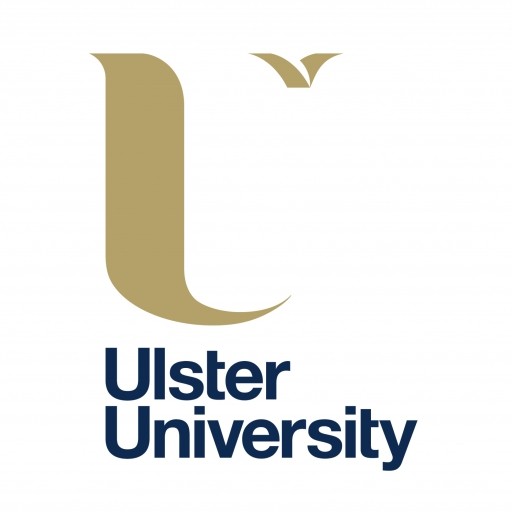Photos of university / #oxford_uni
Geography is a diverse discipline that bridges the arts and social and natural sciences, providing a broad education and addressing pressing issues including environmental change, regional and global inequalities and the transformation of global economy and culture. Students obtain a coherent view of the rapidly changing world and the ways in which society influences and is influenced by it.
The Oxford Geography degree focuses on the interrelationships between society and the physical and human environment. Students are introduced to the full range of geographical topics in the foundational courses, which they can then follow up in more detail in the optional papers. There is considerable emphasis on interdisciplinary approaches in the course, with opportunities to explore the cross-fertilisation between Geography and other disciplines such as anthropology, sociology, history, political science, economics, earth sciences and biology.
The facilities available are among the best in the country, notably:
- the Radcliffe Science Library (RSL), which holds a geography collection of over 28,000 volumes on its open shelves with many more held in closed stack storage. There are over 100 print journals on the open shelves of the RSL as well as electronic access to over 600 core journals;
- well-equipped Geolabs for practical physical courses and individual research projects.
Geo Careers
Geography graduates have a broad set of transferable skills including literacy, numeracy and graphicacy, along with their experience of research projects and working in groups. Some graduates are able to use their geographical knowledge directly in their work or in higher degrees. In recent years Geography graduates have proceeded to employment in management consultancy, local and central government, conservation and heritage management, law, the media, teaching and research. You can see more on alumni profiles on the Geography website.
- Lectures in the morning
- Seminars/practical classes in the afternoon
- Tutorials: at least one college tutorial a week, and some college-based classes.
| 1st year | |
|
Courses Four compulsory courses:
Induction field trip 1-day field trips: Human and Physical |
Assessment Four written papers: Two fieldwork reports; submitted essay on Geographical controversies |
| 2nd and 3rd years | |
|
Courses Geographical Research (core) Foundational courses (two chosen)
Options (three chosen) Options currently offered include:
Dissertation Overseas field trip The options listed above are illustrative and may change. The University may cap the number of students who are able to take a particular one. A full list of current options is available on theGeography website. |
Assessment Six written papers: Three extended essays; fieldwork rep |
- Attestat o Srednam Obrazovanii (Certificate of Secondary Education) would not be sufficient for candidates to make a competitive application. If your qualification is listed as being insufficient to make a competitive application to Oxford, then you will need to undertake further study if you wish to apply.You could take British A-levels (the British Council may know where you can take A-levels in your country), the International Baccalaureate (IB), or any other qualifications listed as acceptable on this page. The first year of a bachelor's degree from another university could also be an acceptable alternative.
- IELTS: overall score of 7.0 (with at least 7.0 in each of the four components)
- TOEFL (paper-based): overall score of 600 with a Test of Written English score of 5.5
- TOEFL (internet-based): overall score of 110 with component scores of at least: Listening 22, Reading 24, Speaking 25, and Writing 24.
- Cambridge English: Advanced, also known as the Certificate of Advanced English (CAE): grade A if taken before January 2015, or a score of at least 185.
- Cambridge English: Proficiency, also known as the Certificate of Proficiency in English (CPE): grade B if taken before January 2015, or a score of at least 185.
- English Language GCSE, or O-level: grade B (for IGCSE, please see below)
- International Baccalaureate Standard Level (SL): score of 5 in English (as Language A or B)
- European Baccalaureate: score of 70% in English.
Hill Foundation Scholarship
Russian nationals wishing to study for a second undergraduate degree.
Palgrave Brown Scholarship
Students must be ordinarily resident in and/or educated in the following countries:
Albania; Armenia; Azerbaijan; Belarus; Bosnia and Herzegovina; Bulgaria; Croatia; Czech Republic; Estonia; Georgia; Hungary; Kazakhstan; Kyrgyz Rep.; Latvia; Lithuania; Macedonia; Moldova; Montenegro; Poland; Romania; Russia; Serbia; Slovakia; Slovenia; Tajikistan; Turkmenistan; Ukraine; Uzbekistan.
The University of Oxford offers a highly regarded Geography degree programme that provides students with a comprehensive understanding of the physical and human aspects of the Earth's environment. The programme is designed to develop a wide range of skills, including critical thinking, spatial analysis, research methods, and data interpretation, equipping graduates for careers in academia, research, government, environmental consultancy, and development agencies. Students have the opportunity to explore diverse geographical topics such as climate change, urban development, environmental management, and geopolitics, often through a combination of fieldwork, laboratory work, and theoretical studies. The curriculum is flexible, allowing students to tailor their studies to their interests, and encourages interdisciplinary approaches by integrating insights from the social sciences, natural sciences, and humanities. The college-based tutorial system offers personalized instruction and feedback, fostering individual academic growth and deep engagement with the subject material. The department also benefits from Oxford's extensive network of research centers and institutes, providing students with access to cutting-edge research and expert lectures. Throughout the programme, emphasis is placed on developing analytical skills, encouraging innovative thinking, and applying theoretical knowledge to real-world problems. The university’s resources, including extensive libraries, laboratories, and field trip opportunities both within the UK and abroad, enhance the learning experience. Graduates of Oxford’s Geography programme often proceed to advanced study or pursue professional careers in sectors such as environmental policy, urban planning, conservation, and international development. The reputation of Oxford’s Geography course, combined with its rigorous academic standards and diverse research opportunities, makes it one of the leading programmes in the world in this field.





